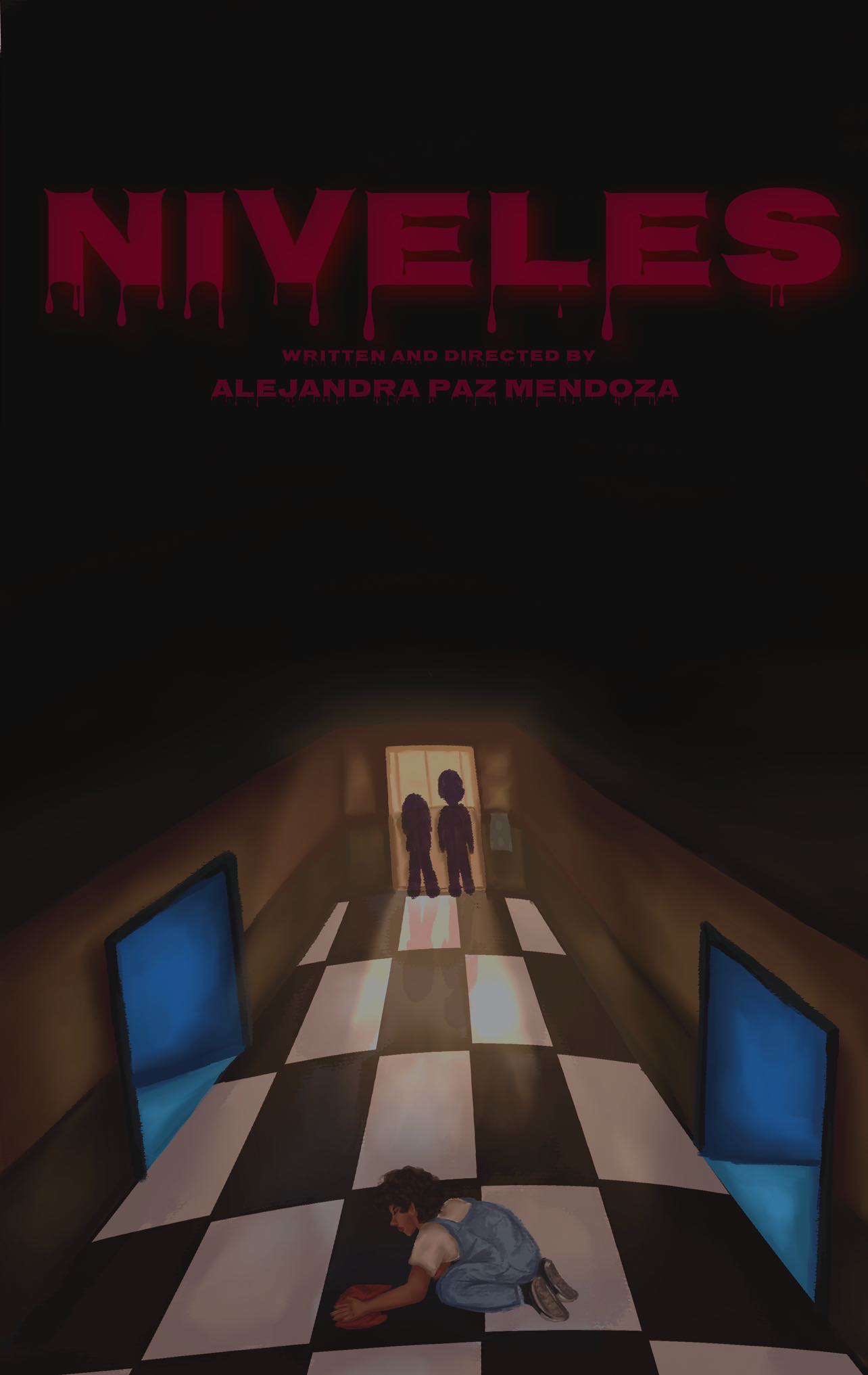The Critiques of Capitalism in the Short Film Niveles
Kamalei Doswell #film review
“Eye opening, psychological torture” is how director Alejandra Paz would describe her sophomore short film _Niveles. _It was in 2023 when Paz, a Cinema Studies major and graduate of the University’s Class of 2023, was inspired to make this film. She was struck with inspiration while filming _Los Ojos, _her first short film, in Knight Library. While carrying equipment in the library’s golden elevator, she remarked on how cool of a location this would be to make a short film, associating the gold of the elevator with money, and how the elevator could represent different social class and working class levels. Despite there being different working positions, however, the exploitation of workers by authority figures remains omnipresent. Thus the concept of _Niveles _was born.
Niveles is centered around a snapshot of the life of Itzel, a package deliverer and the film’s main character. While delivering packages at work, Itzel travels to different floors of the building. Each floor features a different worker who displays bloodied and gruesome side effects of each “level” of capitalism. Itzel undergoes her own transformative process when she is confronted by the company CEO who shows blatant ignorance and apathy for the reality and circumstances of the working class.
In the interview Paz talked about wanting her films to be centered around creativity and inclusivity, but also to teach people and make them uncomfortable. Both of these are integral in the genre of psychological horror, a genre that both of her films fall into. From the moment Itzel, the film’s main character, arrives at her job, the film takes on a portentous tone. As per the film’s title, _Niveles _is a story of levels, specifically working class levels. As the audience catches a glimpse of each level, the message implicated is that no matter what “level” one is on, no matter how high up one gets, they will continue to be stuck in this cycle of capitalism and continue to be exploited, especially in the case of people of color.
The physical manifestations of the toll of this cycle are seen on the bodies of different employees in the film. Starting on the first floor, there is a janitor who is in a dissociative trance, sweeping. When the audience sees that same worker towards the end of the film, they are on their knees scrubbing the floors so hard to the point that their hands are bloody and scabbed. While sobbing, they repeatedly say “I have to get out of here.”This is an example of how the cycle of capitalism not only destroys the body and mind, but also self regenerates by keeping people of color within the cycle, indicating that they can work themselves to the bone and to the point of raw and bloody hands yet everything will remain in the same place; nothing they do will break this cycle.
Another example can be seen when looking at the office worker on the third floor. When the audience is first introduced to this character, she is being berated by her manager. However, by the end of the film, her face is covered in blood after beating her manager. The beating of the manager indicates a different type of breaking point that is reached, a breaking point where rather than working too hard and inflicting pain on oneself, pain is instead being inflicted upon others. This can be interpreted as a loss of self that occurs with having been belittled and pushed so hard for so long by the alienation of capitalism.
Niveles can be described as a film of fear rather than a film of horror. There are no jumpscares within the film, rather it leaves the audience with a longer lasting sense of fear and discomfort compared to relying on momentary shocks. Paz intentionally made the film that way, and I would argue that because of that intentionality, the film is better for it. The story depicted is not an embellished one, rather it’s a real and human one. To watch the film and understand the underlying meanings does in fact prove to be an eye-opening, psychological form of torture as the audience is left to question their own role in this capitalistic cycle. Paz’s overall goal when creating the film was to educate communities, especially given the whitewashed and colonized education system, and should the audience be willing, _Niveles _does in fact prove to be educational.
